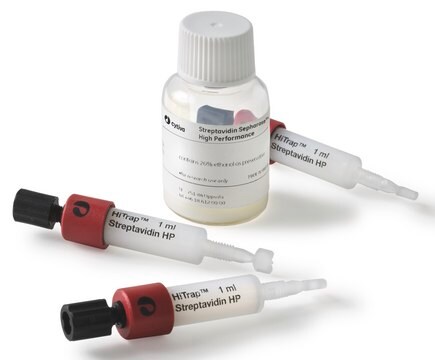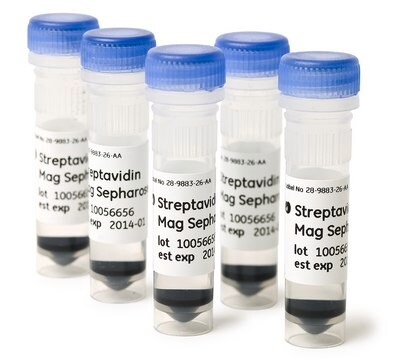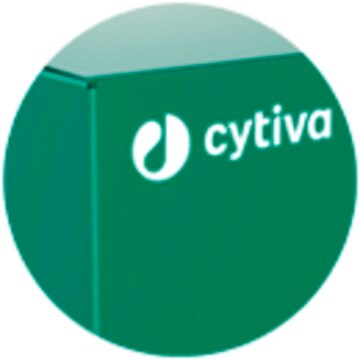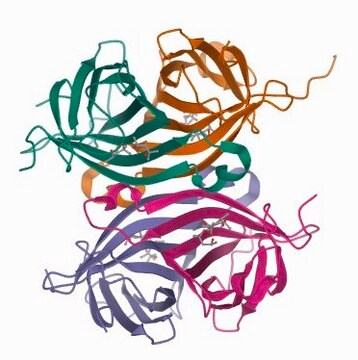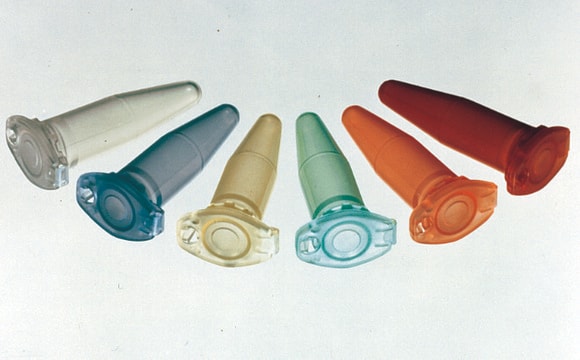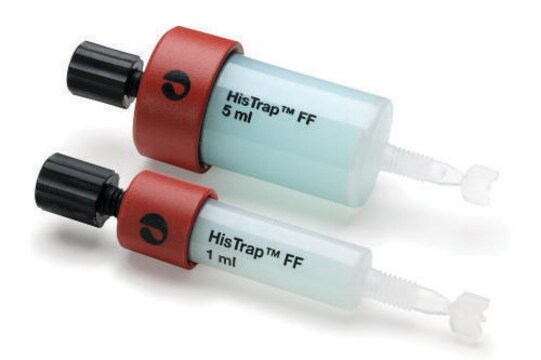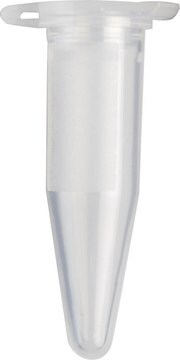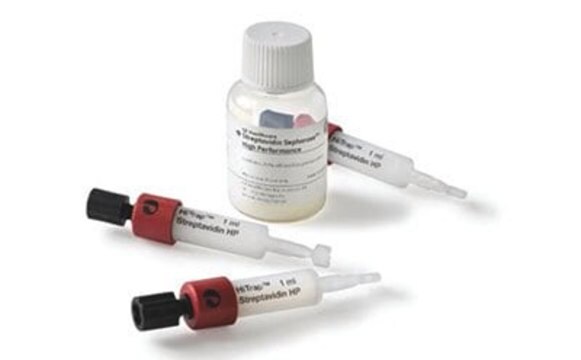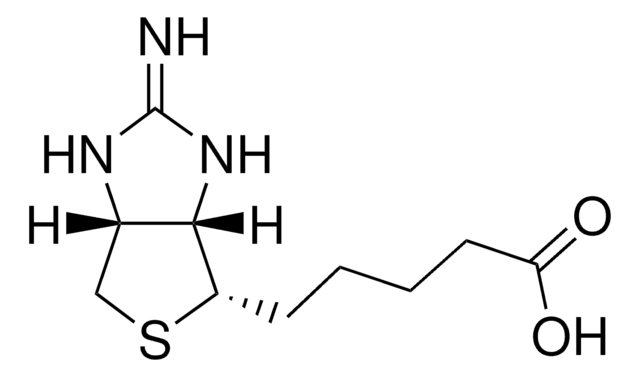GE17-5112-01
HiTrap® Streptavidin High Performance
Cytiva 17-5112-01, pack of 5 × 1 mL
Synonym(s):
HiTrap Streptavidin, Streptavidin High Performance
About This Item
Recommended Products
packaging
pack of 5 × 1 mL
manufacturer/tradename
Cytiva 17-5112-01
storage condition
(20% Ethanol)
(20% Ethanol, 0.1 M Potassium Phosphate buffer, pH 8)
parameter
42 psi
bed size
7 mm × 25 mm
bed volume
1 mL
column I.D.
7 mm
matrix
highly cross-linked 6% agarose
avg. part. size
34 μm
cleaning
2-10.5
working range
4-9
capacity
binding capacity(>300 nmol biotin/ml medium 6 mg biotinylated BSA/ml medium)
storage temp.
2-8°C
General description
Application
Features and Benefits
- Convenient, fast, reliable purification of biotinylated compounds.
- The strong interactions of biotin and streptavidin, as well as the somewhat weaker interactions of 2-iminobiotin and streptavidin are utilized.
- The column can be operated with a syringe, peristaltic pump, or liquid chromatography system such as ÄKTA® design or FPLC™ System.
Storage and Stability
Analysis Note
Legal Information
related product
Signal Word
Warning
Hazard Statements
Precautionary Statements
Storage Class Code
3 - Flammable liquids
Choose from one of the most recent versions:
Certificates of Analysis (COA)
It looks like we've run into a problem, but you can still download Certificates of Analysis from our Documents section.
If you need assistance, please contact Customer Support.
Already Own This Product?
Find documentation for the products that you have recently purchased in the Document Library.
Customers Also Viewed
Articles
This page shows how to solve practical problems that may occur when running an affinity chromatography column.
Protocols
How to separate biotin and biotinylated substances by affinity chromatography using HiTrap Streptavidin HP and Streptavidin Sepharose High Performance products from GE Healthcare.
This page shows how to purify or remove biotin and biotinylated substances with Streptavidin Sepharose High Performance from GE Healthcare.
Sample Preparation for Affinity Chromatography in Specific Groups of Biomolecules
This page shows how to convert between linear flow and volumetric flow rates in affinity chromatography.
Our team of scientists has experience in all areas of research including Life Science, Material Science, Chemical Synthesis, Chromatography, Analytical and many others.
Contact Technical Service